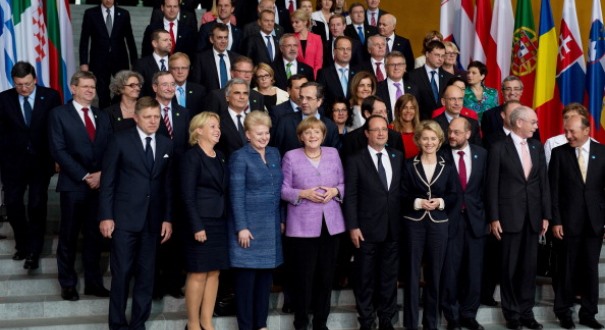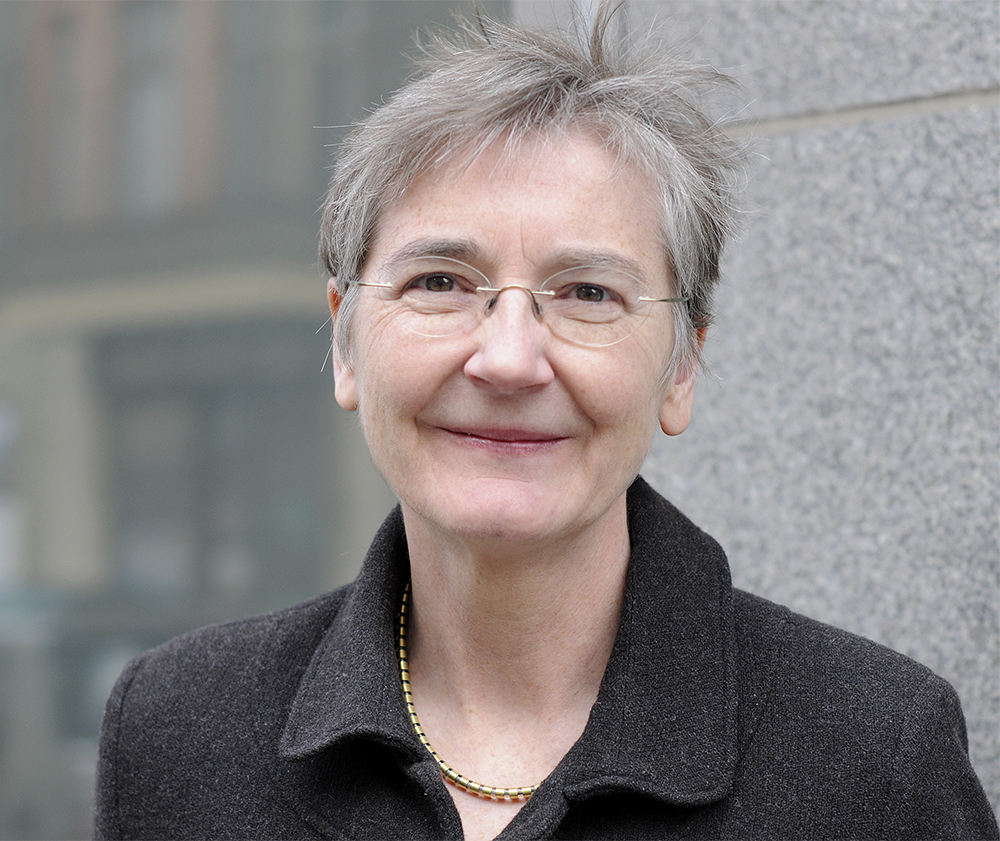Judy Dempsey
{
"authors": [
"Judy Dempsey"
],
"type": "commentary",
"blog": "Strategic Europe",
"centerAffiliationAll": "",
"centers": [
"Carnegie Endowment for International Peace",
"Carnegie Europe"
],
"collections": [],
"englishNewsletterAll": "",
"nonEnglishNewsletterAll": "",
"primaryCenter": "Carnegie Europe",
"programAffiliation": "",
"programs": [],
"projects": [],
"regions": [
"Eastern Europe",
"Russia",
"Ukraine",
"Western Europe",
"United Kingdom",
"France",
"Germany",
"Europe"
],
"topics": [
"Climate Change",
"Democracy",
"EU",
"Security",
"Foreign Policy"
]
}
Source: Getty
A Who’s Who Guide to EU Sanctions on Russia
The EU remained united in imposing an initial round of sanctions on Russia. But there are now big differences among member states on whether to introduce further measures.
Europe’s leaders have so far managed to remain united over the Ukraine crisis. On March 17, they even managed to agree to impose a first set of sanctions on Russia.
But behind the scenes, there are now big divisions among EU member states on whether to introduce further targeted sanctions in response to Russia’s annexation of Crimea.
In the South, countries are still deeply preoccupied by the economic crisis. They are far from enthusiastic about the possibility of slapping on additional measures that might harm them too. Cyprus’s reluctance is linked to its status as a lucrative parking place for Russian money. Italy under former prime minister Silvio Berlusconi grew very close to Russia. Berlusconi is gone, of course, but Italy still has strong business ties to Russia through its energy group ENI.
Geography and religion play a big role, too. Spain’s foreign policy priorities are North Africa and the Middle East. Orthodox Christian Greece, by tradition, has close ties to Russia, especially with regard to trade and energy.
As for Western Europeans, Britain dreads tougher sanctions because of the impact they would have on London as a financial center. France worries about the consequences for defense contracts. The Netherlands has close links to Russian energy giant Gazprom, especially through its distribution network.Germany’s influential industry lobbies are completely against sanctions. The country’s political elite is divided, not just for economic reasons but also because of a sense of history and shared ties. Despite that, German Chancellor Angela Merkel seems determined to impose another round of sanctions, as she made clear during a speech to the parliament on March 20.
Eastern Europeans aren’t united, either. Hungarian Prime Minister Viktor Orbán, who recently signed a major nuclear energy contract with Russia, has played down the entire Ukraine crisis and Russia’s annexation of Crimea. In contrast, the Baltic states are so afraid of their giant neighbor’s appetite that they are taking a tough line despite a total dependence on Russian gas.
The table below presents a rough-and-ready Who’s Who of the 28 EU member states and their attitudes toward tougher sanctions on Russia. It also shows the percentage of each country’s natural gas consumption that comes from Russian imports.
| Country | Support for tougher sanctions on Russia | % of total gas consumption from Russian imports* |
|---|---|---|
| Austria | Reluctant | 52 |
| Belgium | Supportive | 43 |
| Bulgaria | Supportive, but big differences among parties | 100 |
| Croatia | Reluctant | 37 |
| Cyprus | Very reluctant | 0 |
| Czech Republic | Reluctant but will support | 80 |
| Denmark | Supportive | 0 |
| Estonia | Supportive | 100 |
| Finland | Reluctant | 100 |
| France | Reluctant | 17 |
| Germany | Reluctant but will support | 40 |
| Greece | Very reluctant | 55 |
| Hungary | Very reluctant | 50 |
| Ireland | Supportive | 0 |
| Italy | Reluctant | 20 |
| Latvia | Supportive | 100 |
| Lithuania | Supportive | 100 |
| Luxembourg | Supportive | 28 |
| Malta | Reluctant | 0 |
| The Netherlands | Reluctant | 6 |
| Poland | Supportive | 52 |
| Portugal | Reluctant | 0 |
| Romania | Supportive | 24 |
| Slovakia | Reluctant but will support | 63 |
| Slovenia | Reluctant but will support | 57 |
| Spain | Reluctant | 0 |
| Sweden | Supportive | 100 |
| United Kingdom | Reluctant | 0 |
Sources: BP Statistical Review of World Energy 2013, Eurogas, Eurostat.
* Note: The percentage of gas that member states import from Russia is distinct from the percentage that gas accounts for in their overall energy consumption.
About the Author

Nonresident Senior Fellow, Carnegie Europe
Dempsey is a nonresident senior fellow at Carnegie Europe
- Europe Needs to Hear What America is SayingCommentary
- Babiš’s Victory in Czechia Is Not a Turning Point for European PopulistsCommentary
Judy Dempsey
Recent Work
Carnegie does not take institutional positions on public policy issues; the views represented herein are those of the author(s) and do not necessarily reflect the views of Carnegie, its staff, or its trustees.
More Work from Strategic Europe
- Taking the Pulse: Can European Defense Survive the Death of FCAS?Commentary
France and Germany’s failure to agree on the Future Combat Air System (FCAS) raises questions about European defense. Amid industrial rivalries and competing strategic cultures, what does the future of European military industrial projects look like?
Rym Momtaz, ed.
- Macron Makes France a Great Middle PowerCommentary
France has stopped clinging to notions of being a great power and is embracing the middle power moment. But Emmanuel Macron has his work cut out if he is to secure his country’s global standing before his term in office ends.
Rym Momtaz
- How Europe Can Survive the AI Labor TransitionCommentary
Integrating AI into the workplace will increase job insecurity, fundamentally reshaping labor markets. To anticipate and manage this transition, the EU must build public trust, provide training infrastructures, and establish social protections.
Amanda Coakley
- Can Europe Still Matter in Syria?Commentary
Europe’s interests in Syria extend beyond migration management, yet the EU trails behind other players in the country’s post-Assad reconstruction. To boost its influence in Damascus, the union must upgrade its commitment to ensuring regional stability.
Bianka Speidl, Hanga Horváth-Sántha
- Taking the Pulse: Can the EU Attract Foreign Investment and Reduce Dependencies?Commentary
EU member states clash over how to boost the union’s competitiveness: Some want to favor European industries in public procurement, while others worry this could deter foreign investment. So, can the EU simultaneously attract global capital and reduce dependencies?
Rym Momtaz, ed.









